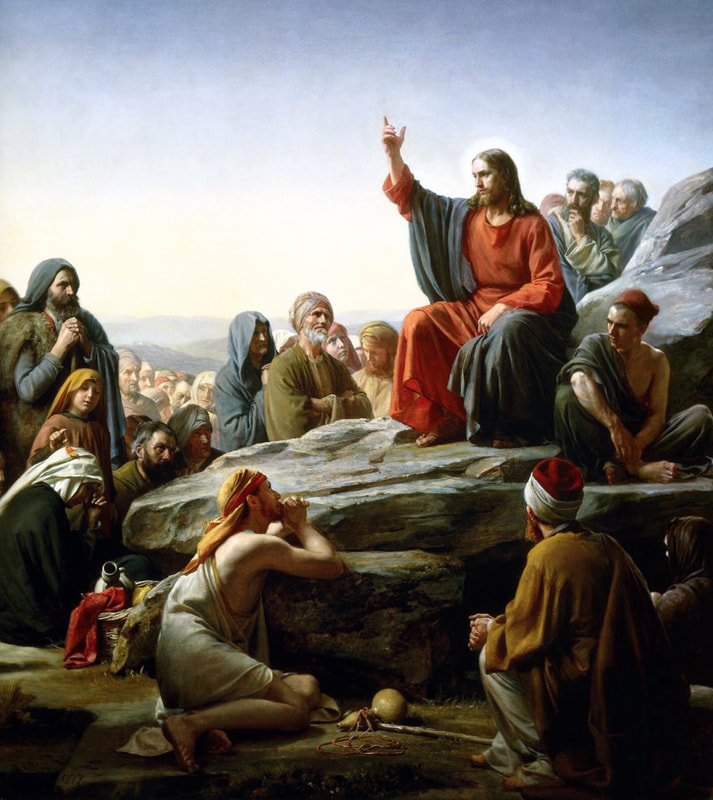|
Matthew 5:20-26 (NRSVCE) For I tell you, unless your righteousness exceeds that of the scribes and Pharisees, you will never enter the kingdom of heaven. “You have heard that it was said to those of ancient times, ‘You shall not murder’; and ‘whoever murders shall be liable to judgment.’ But I say to you that if you are angry with a brother or sister, you will be liable to judgment; and if you insult a brother or sister, you will be liable to the council; and if you say, ‘You fool,’ you will be liable to the hell of fire. So when you are offering your gift at the altar, if you remember that your brother or sister has something against you, leave your gift there before the altar and go; first be reconciled to your brother or sister, and then come and offer your gift. Come to terms quickly with your accuser while you are on the way to court with him, or your accuser may hand you over to the judge, and the judge to the guard, and you will be thrown into prison. Truly I tell you, you will never get out until you have paid the last penny. You may recognize today’s Gospel reading. It’s an excerpt from the Sermon on the Mount. Jesus exhorts us to reconcile ourselves with one another, not simply with God. He even goes so far as to say that if you have come to offer something to God, but you remember a feud with your brother, “first be reconciled to your brother or sister, and then come and offer your gift.” It seems odd to say that we should keep from approaching God until we are reconciled with each other, doesn’t it?
It doesn’t seem that odd when you consider what it means to walk in faith. As children of God, we are called to be Christ-like. We are called to conform ourselves to Jesus—to behave as He behaves, to love as He loves. When Christ was on the cross, after having been brutally beaten and tortured by his accusers, did he scream at them in anger? Did he lash out against them? No. He prayed for them. “Father, forgive them; for they do not know what they are doing.” (Luke 23:34) Christ loved them, and calls us to do the same to our accusers. But it’s also more than that. Jesus did not simply give us wise teachings, or moral precepts. He gave us the Church. “And I tell you, you are Peter, and on this rock I will build my Church, and the gates of Hades will not prevail against it.” (Matthew 16:18) It is as members of His Church, as members of the Body of Christ, that we are saved. If you have read my blog for awhile, you may remember me talking about Romano Guardini’s description of the “supra-personal character” of the Church. The Church is more than simply the sum total of its members. The Church is not simply a label used to identify those who believe in Jesus. Rather, the Church is given to us, and we participate in it as members. Christ saves His Church, and promises that the gates of Hell will not prevail against it. It is the Body of Christ which is saved. And a body functions rightly only when all its members work together for the same end. So it is not just a matter of conforming ourselves, as individuals, to Christ. It is a matter of conforming our communities. We are meant to reconcile with one another precisely because it is through building communal bonds, through loving one another, that we act as one body. It is through this that we conform ourselves to Christ. Look at the opening of this passage. Why does Jesus call out the scribes and Pharisees before talking about the importance of charity? Because the scribes and Pharisees were so focused on themselves and how they as individuals could please God, through fulfilling the Law, that they neglected to love their neighbors. They neglected to reconcile themselves to those around them. That is what Jesus means when he says that we need to be more righteous than they were. As members of the Body of Christ, we are called to more than any kind of individual holiness. We are called to participate in the one People of God, as members of the flock, so that the Shepherd can lead us to the Father. |
ArchivesCategories
All
|

 RSS Feed
RSS Feed